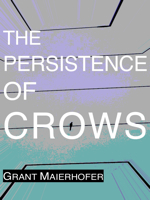Clyde’s The Man!
by Al Billings
In the summer of 1973, I founded a gardening business with a new friend named Mark. We were in our early 20’s, and had both attended a high quality horticulture program at a community college in San Bernardino, California. We were well trained by a seasoned horticulturist, and eager to succeed. Mark acquired an ancient Dodge pickup and painted it shit-brown. My wife and I bought a modest house built on one of the old half-acre lots that the Mormons had surveyed back in the mid-nineteenth century, and it became our base of operations.
We imagined that our newly developed skills would lead us to an abundance of interesting gardening projects. We fancied serving the county club set and its wealthy business leaders whose mansions dotted Valencia Avenue along the west side of town, and clients dwelling in Modernist and Mission-style houses ringing the foothills above us, strangely rough men who had worked their way into high-paying civil service jobs at odds with their brash demeanors. I would later discover that most of the liquor stores, vineyards, Italian restaurants, whores and gambling operations were owned and operated by local Mafiosos. No wonder all those former mayors were so prosperous.
During the depression, the WPA constructed swimming pools and public parks throughout San Bernardino and the extravagantly-named Inland Empire, and a few modest cultural centers, all of them cast in an ersatz Mission style foist upon the area by fanciful Los Angeles designers who reinvented Southern California’s past in their own image. You could find someone to teach you to play classical guitar, or grow Bonsai, but beyond those cultural grace notes, San Bernardino was a tough, blue-collar pioneer town gradually sliding into a permanent, slow-motion decline. Its most successful community organization was probably the local chapter of the Hells Angels. Despite the majestic peaks that embraced the valley, San Bernardino failed to live up to the mountains that surrounded it.
Neither of us possessed the marketing skills to break into the business at the level we desired. Like most neophytes, we found ourselves starting at the bottom and struggling up the ladder, rung by rung, and further, we began to realize that we’d not be grafting fruit trees, hybridizing roses or deploying any of the complex horticultural skills we’d learned. A few landscape contractors captured the large projects, and we were left with the crumbs. We were living and working in San Bernardino, and we were the guys who mowed your lawn.
So we laughed a lot, and turned most of our gardening experiences into rolling comedy routines. We nicknamed the bulldozer operator at the dump “Nikita,” because of his Khrushchev-like profile, and a cancer-ridden zombie who continued to smoke Camel cigarettes became “The Carcinoma Kid.” We’d crack ourselves up so thoroughly that we’d drive several miles past our clients’ houses before we realized that we’d gotten sidetracked while entertaining ourselves. And once, after a particularly grueling work week, we concluded it by consuming stout doses of LSD and seeding an enormous lawn.
But we each sensed that we were merely treading water. I was an accomplished guitarist in demand in some of the local honky tonks. I had all the weekend gigs I wanted, and Mark had an interest in ceramics, but we lived a static existence, encircled by the low expectation levels that flooded the city.
Most of our clients had little or no relationship with their own landscapes. To them, lawn mowing was a necessary evil foist upon them by their nagging wives, and excepting a few beautiful gardens carefully maintained by trembling old ladies, whatever trees and perennials that had been installed remained in stasis. Our clients engaged our services with great reluctance and with passive/aggressive feints demonstrated by their refusal to pick up the endless mounds of dog poop that usually infested their lawns. We became expert at scraping it off of the bottoms of our shoes, employing twigs, garden hoses and hand shovels to scrape it away, vast, endless minefields spiked with well-concealed shit. Most of our clients could barely afford our services, and resented spending the money. Crabby retirees tended to lurk in ambush for our arrival, ready to bitch because we were ten minutes late. And as usual, the most generous clients where the ones who could least afford our services.
We gained a new client who lived on a bluff overlooking the Santa Ana River, a portly gentleman named Bertrand, who usually sported a food-stained t-shirt and a reluctance to shave or bathe. We could see that he ran some sort of business out of a small barn in his back yard. After we’d made a few visits, we learned that he repaired Orchestrions, fantastic, hand-made music machines that once anchored boardwalks and arcades throughout America. Drop a nickel in a box, and the machine would spring to life, drums beating, horns blaring, an entire symphony enclosed in a beautifully ornamented wooden box. Bernard built and repaired those machines, and kept up a steady correspondence with his clients and suppliers. There were always several hulks looming within his work shop. We spent a lot of time discussing Bertrand and his fantastic music machines, drawn to the old-world, hand-made quality of his work, and the simple fact that anyone could survive operating a business as exotic as his, especially in a town like San Bernardino.
We usually got acquainted with the dogs that our clients kept. Most of them were tame and friendly. But Bertrand owned a sullen Doberman and an elderly Cocker Spaniel afraid of her own shadow. We never trusted that Doberman; something dank and feral enveloped it, and despite Bertrand’s attempts to put us at ease, we usually gave that dog a wide berth.
Eventually, we began to acquire a few wealthier clients along Valencia Avenue, including an elderly man who was both heir to the local newspaper business and a symphony conductor, imperious, quite full of himself, and he looked as though he was accustomed to having his ass kissed on a regular basis. On scheduled mornings, we’d show up to mow and clip, and peak through the louvered blinds of his sunroom and watch him shuffle across an enormous polar bear rug, dressed in footed pajamas like a ten year old boy, and lugging a pitcher of milk and a box of Cheerios to the breakfast table. His landscape included a 150-foot half-circle Pyracantha espalliered along a stuccoed wall.
The relationships that exist between clients and domestic help can be complex. The clients themselves have their own self-images to maintain, and those of us who have served them have our own. If you’re the least bit inclined to treat the domestic help with respect, you’ll soon be flooded with a torrent of intimate details about your client’s lives and relationships. Mexican domestics have become expert at concealing the fact that they understand every word of English spoken in a client’s house. If the husband has a girlfriend stashed away somewhere, we’d know it, and if they were assholes, and teetering on the edge of bankruptcy, we’d savor their downfall.
One morning, Clyde, a tall, skinny black man who we regrettably nicked-named “Rochester,” after an actor who portrayed a butler on the old Jack Benny television show, motioned for us to meet him upstairs in an apartment over the conductor’s garage. Clyde hunkered near a window, pointed down at our client’s blonde teenaged daughter swimming in the pool below and hissed, “That Katie–I sneak up here when she’s in the water, and I whip out my big, black dick and jack off while she’s breast-strokin’! Look at that ass, man!” As the reader can imagine, we learned to cherish Clyde and his running commentaries. The publisher and his daughter never looked the same to us, but who cared? The old bastard never paid us on time, and he kept a tiny pistol in a concealed holster attached to the inside panel of the driver’s-side door, probably because he’d been screwing a lot of little guys like us and figured that sooner or later, some disgruntled lackey would shove a gun barrel down his throat.
One morning I caught him climbing into his Cadillac, about to leave, and I confronted him about his overdue payments. He attempted to talk his way out of paying us again. I had to repress the urge to snatch that little pistol out of its holster and wave it under his nose until he wrote us a check.
We returned to Bertrand’s one morning, ready to mow. He’d made a few changes. Now, he’d encircled the house with wire and a line of stakes driven into the ground, and attached it to a car battery. If one of Bertrand’s dogs got too close to the wire, he’d get zapped. We’d gotten distracted by visiting with Bertrand, so it took us a while to realize that the big Doberman would run circles around the Spaniel, narrowing the circumference on each pass, forcing the Spaniel into the electric wire and leaving her shrieking with pain. The Doberman would retreat for a few minutes, and then repeat the process whenever he felt like it. I remember staring directly into the Spaniel’s left eye, now blood-shot and charged with fear, like Ahab plunging his harpoon into the white whale’s terror-filled eye.
I don’t know how long the torture went on, because I eventually sold my half of the business to Mark and moved on to other adventures. Occasionally, I wonder if Clyde’s big black dick ever got him into any serious trouble. And I pray that there’s a special Hell containing Bertrand and the conductor, each of them trimming that Pyracantha for the rest of eternity and trotting as fast as they can while a vicious Doberman rips chunks of flesh out of their fat asses.








